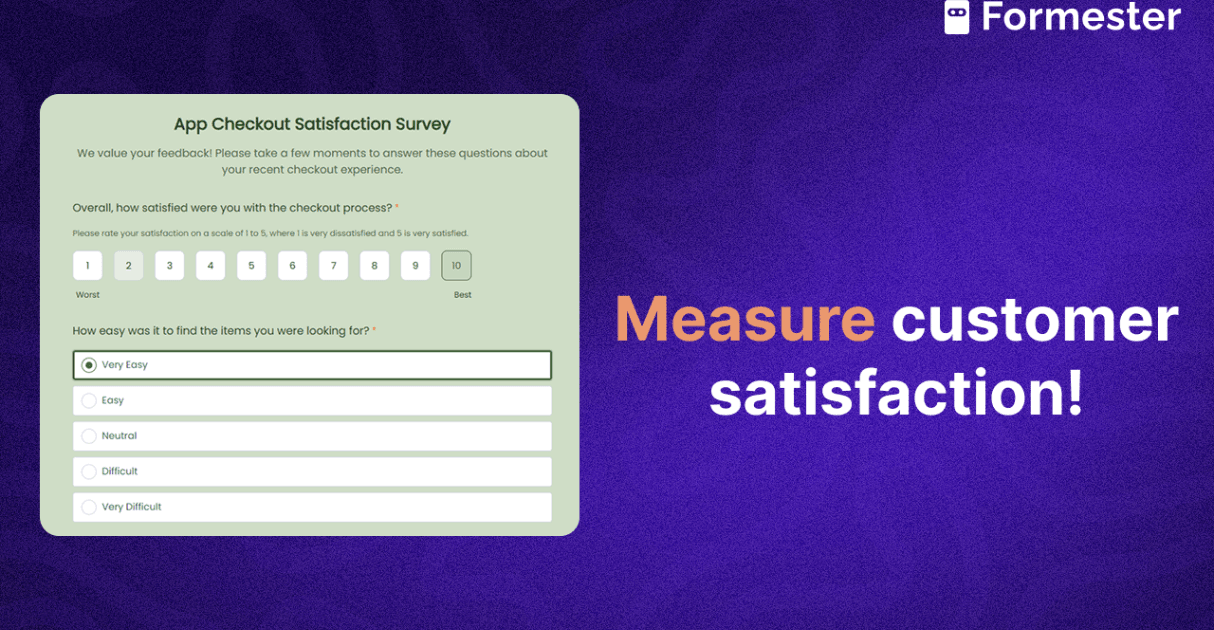Top 5 Event Marketing Tools
So you’ve finished planning your event, but now comes the real challenge: getting people to actually show up.
Promoting your event effectively is just as important as planning it. With the right tools, you can reach your audience, engage them with personalized content, and drive registrations without wasting time or resources.
In this post, we’ll cover five of the best event marketing tools for 2025, each with unique features and use cases, designed to help you get more attendees and make your events a success.
1. HubSpot
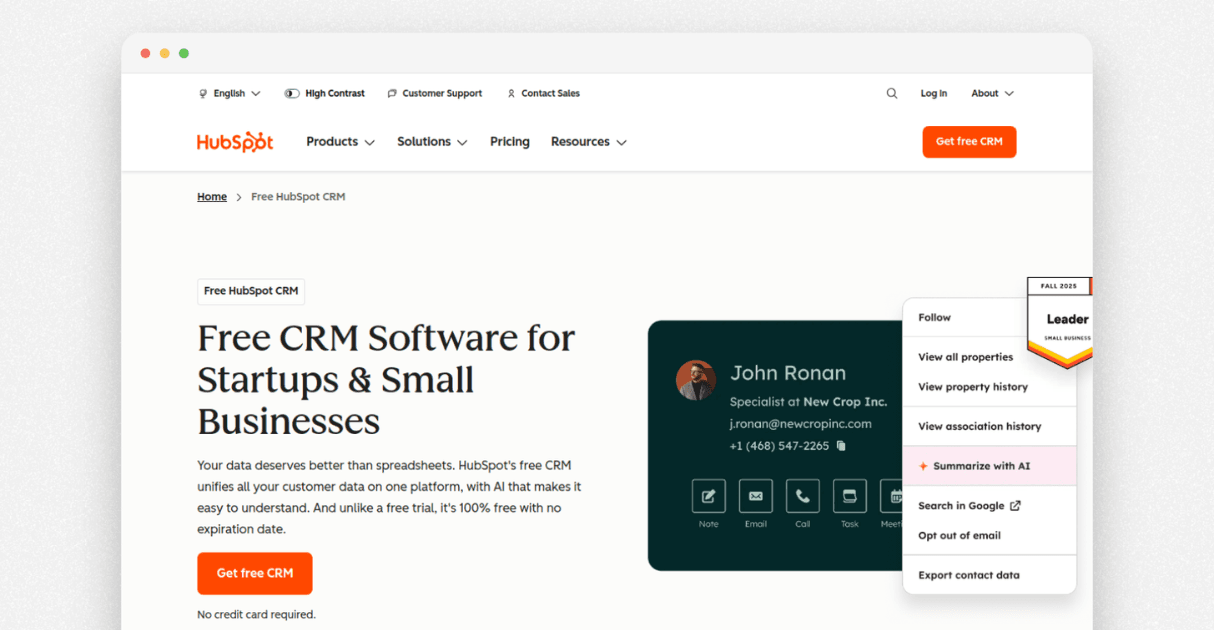
HubSpot is a powerful all-in-one marketing platform that combines CRM, email marketing, landing pages, and automation. It gives you everything you need to manage your event marketing from a single platform.
With HubSpot, you can attract potential attendees, track how they interact with your campaigns, and send automated reminders or personalized follow-ups effortlessly. Its built-in CRM lets you see the full journey of every contact, from the first click on your event page to post-event engagement, so you can understand what’s working and optimize what isn’t.
Best use: If your goal is to build a long-term event funnel, nurture leads before the event, and re-engage past attendees for future ones, HubSpot is the perfect choice.
Pricing: HubSpot offers a free plan, and paid plans start at $20 per month.
2. Mailchimp
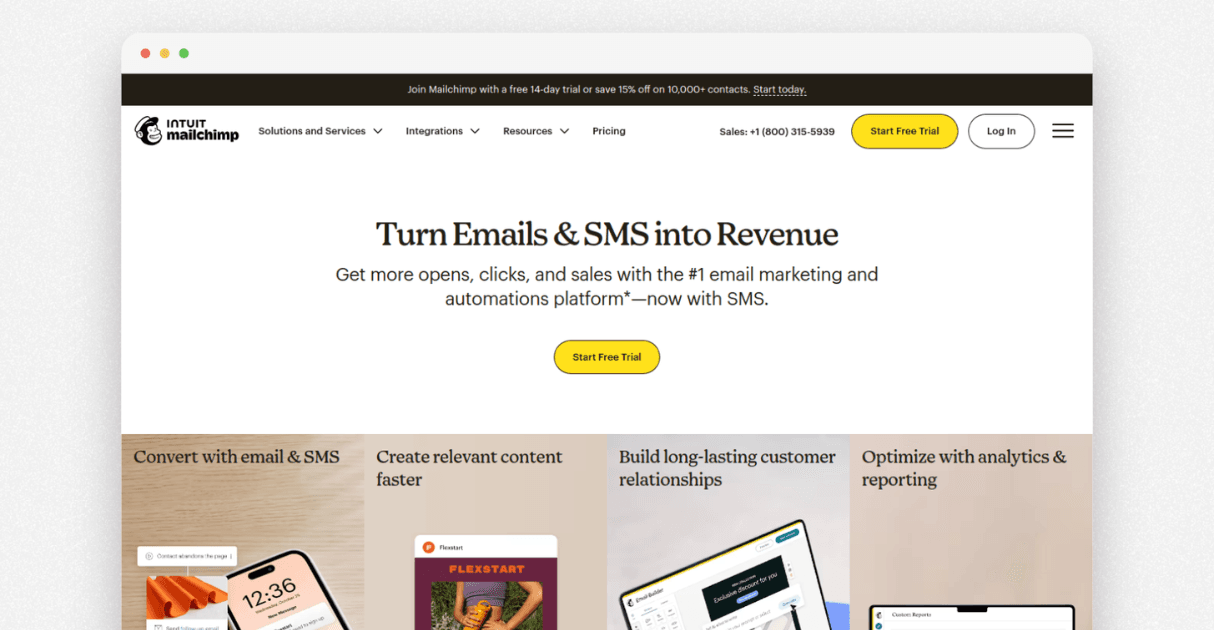
Mailchimp is one of the most popular email marketing tools available, known for its simplicity and beautiful templates. You can create engaging email campaigns, design landing pages, and promote your events through newsletters or social media—all from an intuitive dashboard.
Mailchimp lets you segment your audience, schedule automated event reminders, and track campaign performance in real time. It’s ideal for smaller teams that want to promote events quickly without complex setup.
Best use: If you have a modest attendee list and need a fast, effective way to promote your event via email and social media, Mailchimp is a great pick.
Pricing: Mailchimp offers a free plan, and paid plans start at $13 per month.
3. Marketo Engage (Adobe)
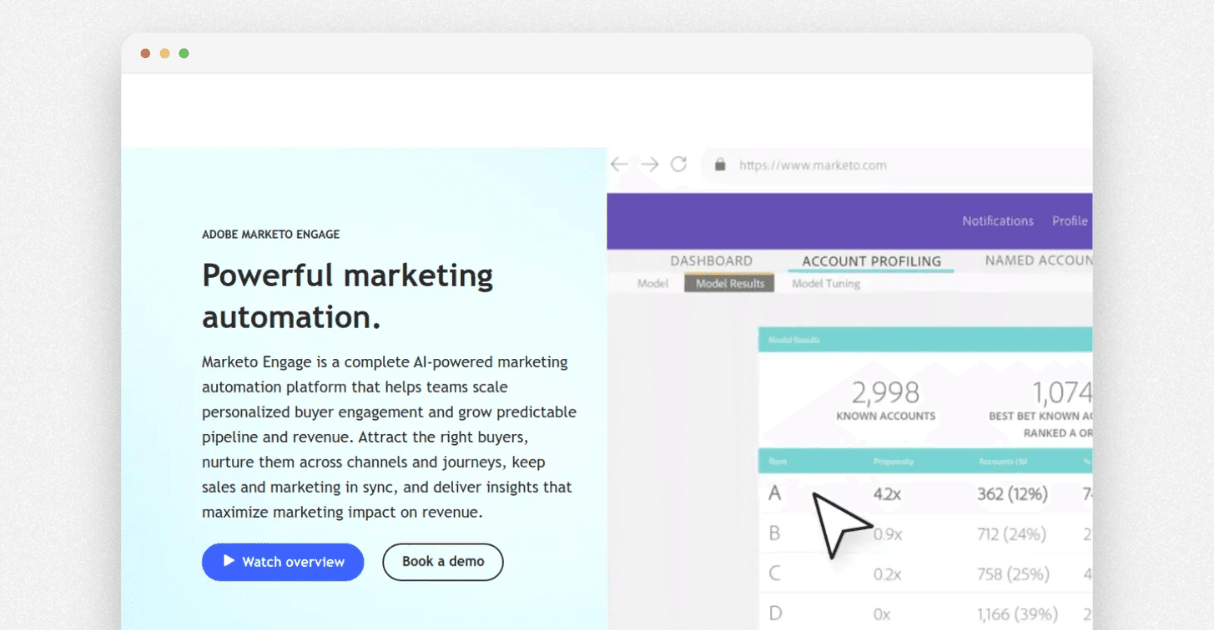
Marketo is built for enterprise-level marketing campaigns. It offers powerful automation, advanced audience segmentation, and in-depth analytics that help you personalize every touchpoint across channels like email, web, and ads.
With Marketo, you can design complex marketing journeys, score leads based on engagement, and run data-driven campaigns that align your entire team. Its customizability makes it ideal for large organizations that need full control and insights at scale.
Best use: If you’re hosting large events, managing multiple campaigns, or want to coordinate marketing across teams with deep personalization, Marketo is a top choice.
Pricing: Marketo’s pricing is custom, typically starting around $1,250 per month.
4. Eventtia
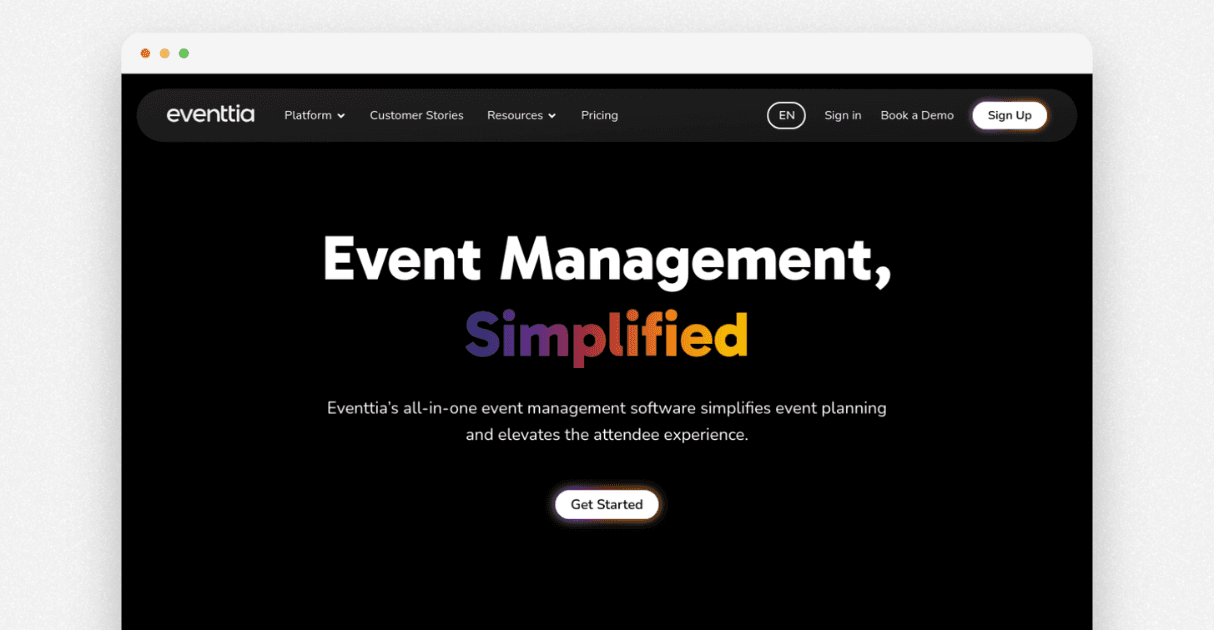
Eventtia is an all-in-one platform for both virtual and in-person events. It stands out for its focus on custom branding and multi-channel promotion. You can create professional event websites, manage email campaigns, handle registrations, and track engagement all in one place.
Eventtia also integrates with major CRMs and social media platforms, giving you analytics to measure ROI and optimize campaigns. Its user-friendly dashboard allows marketing teams to manage events efficiently without needing technical expertise.
Best use: If you want a single tool to design, promote, and manage professional events with consistent branding, Eventtia is a strong choice.
Pricing: Eventtia offers custom pricing, typically starting around $1,500 for 250 attendees.
5. Brella
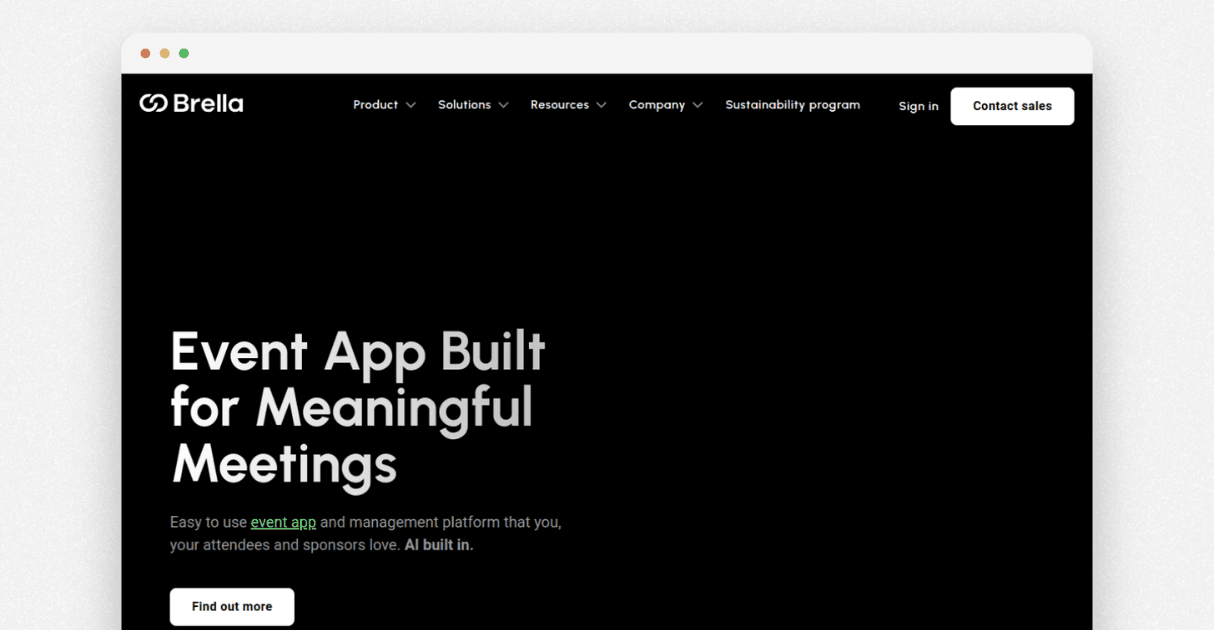
Brella focuses on networking and attendee engagement. Using AI, it matches attendees based on shared interests or goals, helps schedule meetings, and makes it easy to connect before, during, and after the event.
With in-event messaging and scheduling tools, Brella transforms your event from a one-way presentation into a meaningful networking experience. This not only improves engagement but also adds long-term value for your attendees.
Best use: If your event emphasizes networking, relationship-building, or community engagement, Brella is the perfect fit.
Pricing: Brella offers custom pricing based on event size and features, typically starting around $3,000 per event.
Bonus Tool: Formester
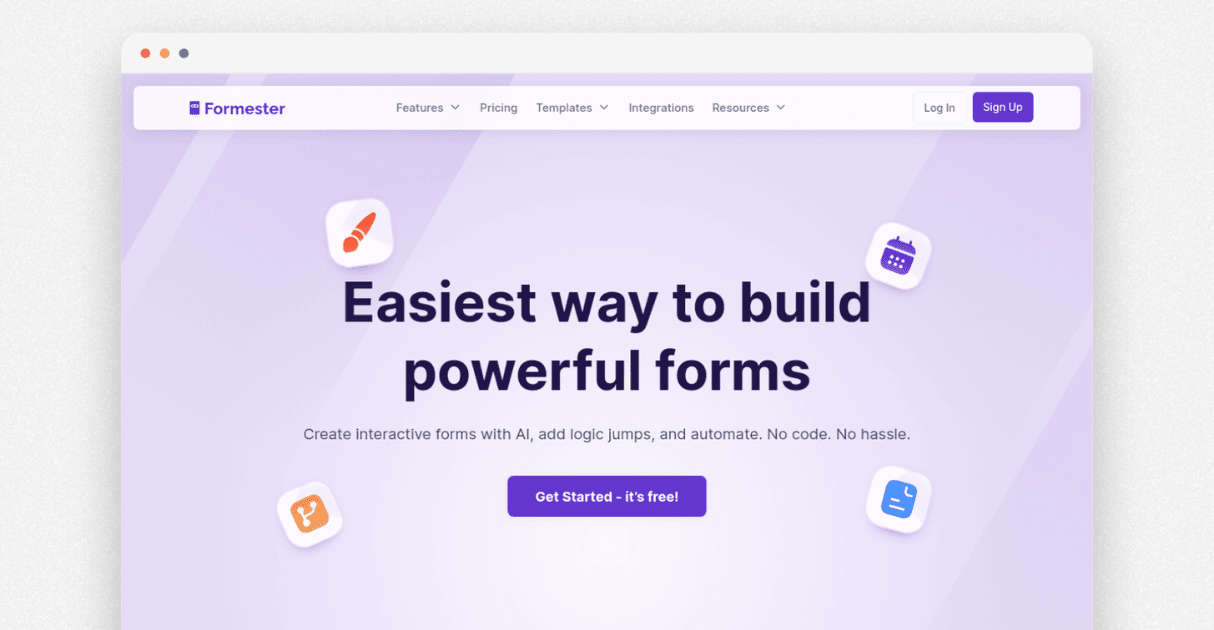 While the tools above focus on marketing and engagement, Formester is a perfect complement when you want to streamline your event registration process.
While the tools above focus on marketing and engagement, Formester is a perfect complement when you want to streamline your event registration process.
Formester is an AI form builder that makes event registration effortless. It allows you to create custom registration forms, use conditional logic to show the right questions to the right attendees, accept payments, and even generate QR codes for quick check-ins. Automated confirmation emails and integrations with CRMs, Slack, or Google Sheets save you time and make managing attendee data stress-free.
Best use: If you want an easy, fully customizable registration solution that automates sign-ups, collects detailed attendee data, and gives your attendees a smooth experience, Formester is the ultimate choice.
Pricing: Free plan available; paid plans start at $13 per month.
Conclusion
Choosing the right event marketing tools can save time, increase attendance, and make your events more successful. From all-in-one platforms like HubSpot and Eventtia to specialized tools like Brella for networking, each tool offers unique features that cater to different types of events and marketing goals.
By picking the right tool for your event, you can automate repetitive tasks, track attendee engagement, and focus on what really matters: creating memorable experiences for your audience.

